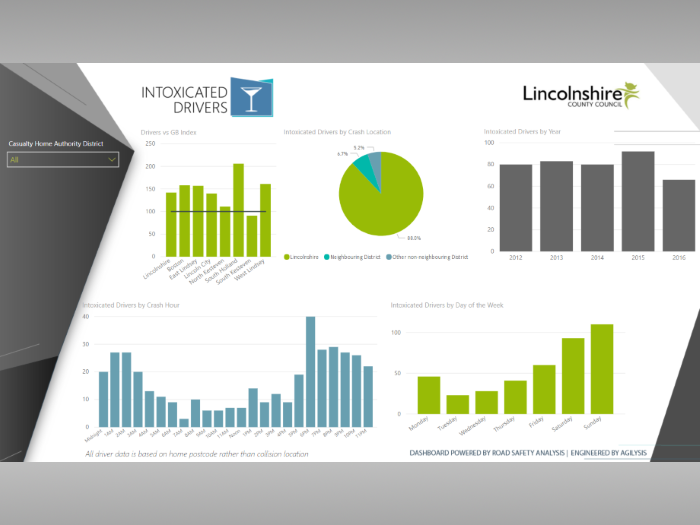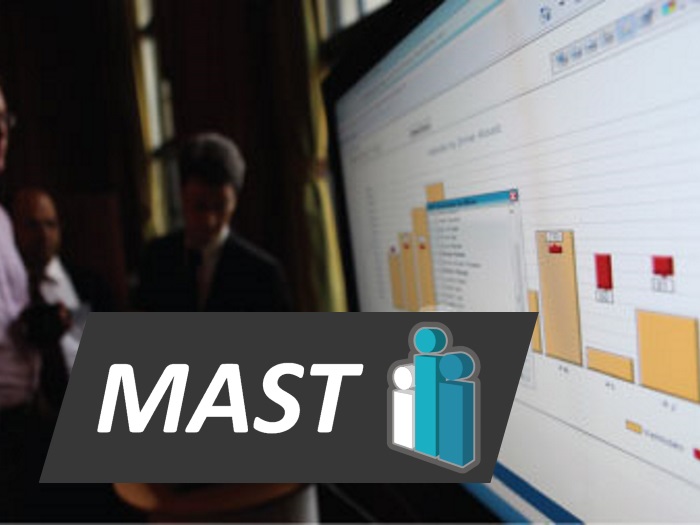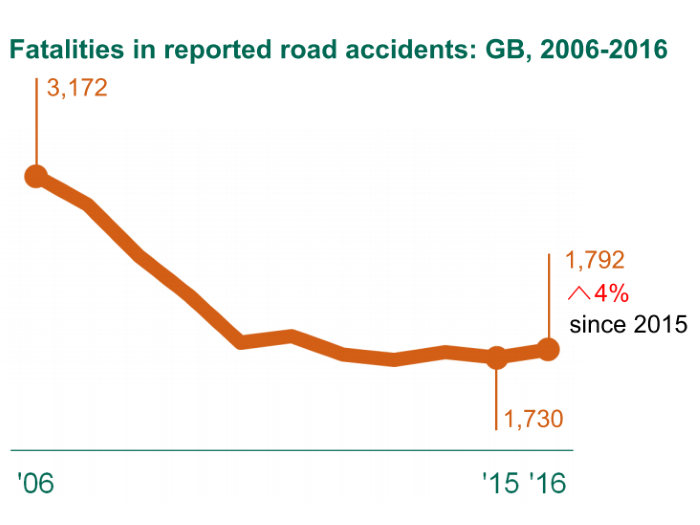New Geographical Hierarchies in MAST
January 17, 2014Annual Conference 2014
March 17, 2014
Cycling Study Scoops the MAST Award
With the Tour de France visiting Yorkshire in only a few months’ time, Safer Roads Yorkshire and Humber has picked up the 2014 MAST Award for a comprehensive study of cycle collisions that is underpinning their engagement strategy at this critical time.
Above: Ruth Gore, Trish Hurst & Anke Taylor collect the 2014 MAST Award from Louise Lloyd of TRL.
Returning for its 4th year, the MAST Conference once again attracted a wide range of road safety professionals from across the country to look at new trends in road casualty analysis.
The day started with a challenge from Dr Simon Christmas to look critically at the way in which segmentation can work to help deliver value for money, but also caution that the segmentation we select needs to be fit for purpose.
Responding to the needs of authorities, several new initiatives are in the pipeline including a suite of open training courses to support users in work on analysis, evaluation, social marketing and handling the media. More information on these is available from [https://www.roadsafetyanalysis.org/training/]
MAST Training has now been completely redeveloped to reflect the broader ranger of analyses that can be undertaken in MAST, but also to meet the needs of users coming to MAST with very different levels of experience. In addition a new course to support practitioners in tackling evaluation is now being made more readily available.
The MAST Introduction course is designed for those with limited experience of working with road casualty data and starts with the building blocks of STATS19, developing a delegate's understanding of the strengths and weaknesses in the data before moving on to start analysis with in MAST
MAST Basics and Beyond takes delegates who already work with STATS19 data and starts to immerse them into the world of MAST Online taking them to the point that they can start to deliver some quite comprehensive reports bast on the data within.
MAST Professional tackles more detailed analytical techniques such as examination of risk to residents and demography of road users. Crucially this course sets to work on detailed Contributory Factor analysis.
Evaluation Foundation: This course is designed to assist Road Safety professionals in understanding the principles of evaluation and to equip them with the fundamental skills and confidence to undertake their own evaluations.
RSA has delivered a range of other course over the years that have not previously been offered on an open course basis but which are being opened up in 2014.
Media Foundation: This course is designed to equip Road Safety professionals with the confidence and skills to handle a range of news media scenarios; offering vital experience in front of camera and in interview situations.
Social Marketing Foundation: Built around examples from public health, this course looks at ways in which social marketing campaigns can be delivered in a targeted way, from a basis of research and evidence, leading to evaluated outcomes.
Social Media Foundation: Develop the awareness and skills to reach out through social media; using the right channels, content and messaging to target your audience.
A central plank of this year’s conference was introducing a host of new features in MAST Online including Contributory Factor (CF) analysis in MAST Professional. The introduction of CF data gives each user the power to look in far greater detail at the underlying causes of collisions assessing the impact of issues such as excessive speed, road condition and impairment by alcohol. In a later session on comparative analysis RSA also unveiled the new Highway Authority Network Classification System (HANCS) a means of supporting users to compare performance between authorities on the basis on how similar their road network is. The new Westminster Constituency dimension also had its first outing, highlighting innovation ways of presenting the data for either larger authorities or political purposes.
'Practitioner Profiles' gave an opportunity for some of the users to share their experiences of using MAST, meanwhile breakout sessions allowed delegates to decide between tackling more detailed analytical techniques or utilising MAST, Mosaic and other data to drive intervention planning, there was tailored content for delegates coming from an ETP background as well as those who are analytically orientated in their work.
The day finished with an exciting first look at some of the new dashboard features that the MAST team have been working. These facilitate powerful comparative analysis all delivered in a really easy-to-use clickable interface.















